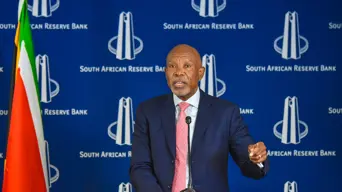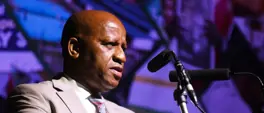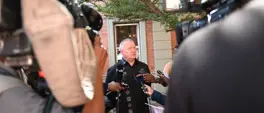G20: Fiscal and monetary policy heads to host latest finance track meetings in KZN
Nokukhanya Mntambo
14 July 2025 | 5:39The meetings will kick off on Monday, starting with the deputy finance ministers and deputy central bank governors.

Reserve Bank Governor Lesetja Kganyago delivers the MPC statement, 29 May 2025. X/SA Reserve Bank
JOHANNESBURG - It will be a big week for South Africa’s G20 presidency when fiscal and monetary policy heads host the latest finance track meetings in KwaZulu-Natal.
The meetings will kick off on Monday, starting with the deputy finance ministers and deputy central bank governors.
This is the fourth time the group will meet with global counterparts since South Africa assumed the rotational presidency.
At previous meetings, finance officials from South Africa and other parts of the world emphasised challenges and constraints to growth in developing countries, particularly in Africa.
Debt sustainability for developing economies is one of the priorities, with calls from the continent for solutions to address the crippling debt crisis, which is possibly the worst in 80 years.
The high cost of cross-border payments is also expected to be back on the agenda at this week’s meeting.
“It has to do with cost, it has to do with speed, it has to do with transparency. It’s a very important area of work, particularly when the presidency of the G20 is held by an African country like South Africa, because the cost of cross-border payments in African corridors is among the highest in the world. It is said that the most expensive corridor is the Johannesburg-Harare corridor,” said Reserve Bank governor and co-host of the G20 finance track Lesetja Kganyago.
The series of meetings in Durban comes on the back of continued geopolitical tensions and looming threats of new trade wars.
South Africa is the only country in sub-Saharan Africa to be singled out in the latest round of announcements by United States (US) President Donald Trump, with the possibility of a 30% tax on exports to the US from August.
Get the whole picture 💡
Take a look at the topic timeline for all related articles.















